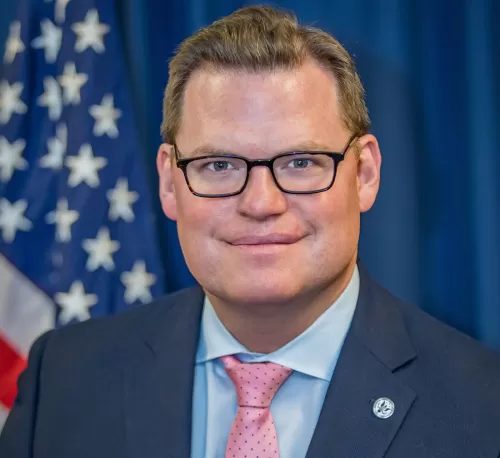NCUA Vice Chairman Kyle S. Hauptman
As Prepared for Delivery on March 17, 2022
Thank you, Melissa and Lindsey, for this presentation and to the OCFO team for pulling together input from the Board, agency offices, and commentors.
The NCUA’s mission is to “protect the system of cooperative credit and its member owners through effective chartering, supervision, regulation, and insurance.” Our objectives continue to focus on safety and soundness, effective supervision, and improving the financial well-being of individuals and communities through access to affordable and equitable financial products and services.
It is no secret that I believe that choice is one of the best guarantees of consumer protection. Not only the choice of what type of financial institution to use, but also the choice to form a financial institution dedicated to the specific needs of its community — a credit union.
The Strategic Plan and the associated Annual Performance Plan continue to address the vulnerability of new and smaller credit unions. Work remains on clarifying and streamlining the chartering process for new credit unions. More resources have been directed toward small credit unions and minority depository institution (MDI) credit unions.
Regarding the plan’s language around climate financial risk, the NCUA Board wants to emphasize that nothing in this strategic plan should be construed as discouraging activities related to agriculture or fossil fuels. We add no value by informing credit unions in Florida that they have damaging hurricanes, nor those in agriculture that droughts are harmful.
The agency does not intend to micromanage credit union lending decisions for climate financial risk, including lending to family farms and others in the agricultural sector as well as businesses tied to the fossil fuel industry. Any micromanaging or ‘putting NCUA’s thumb on the scale’ may end up adding, not subtracting, risk to the Share Insurance Fund.
Similarly, regarding membership affected by climate, credit unions, not the NCUA, are best positioned to assess various risks and opportunities within their field of membership. Credit unions need to make their own decisions on diversification and expanded fields of membership.
The plan continues to recognize that credit unions must have access to evolving technology to remain viable. Clear guidance and regulation that allow for innovation will allow credit unions to move forward confidently.
Improving dialog and transparency with credit unions remains an area of focus. Better communication, including exam feedback surveys and, at least for federally chartered credit unions, recording the exit exam will advance the exchange of information between the agency and credit unions and ultimately improve clarity in regulations and guidance.
Thank you, Mr. Chairman. That concludes my remarks.




